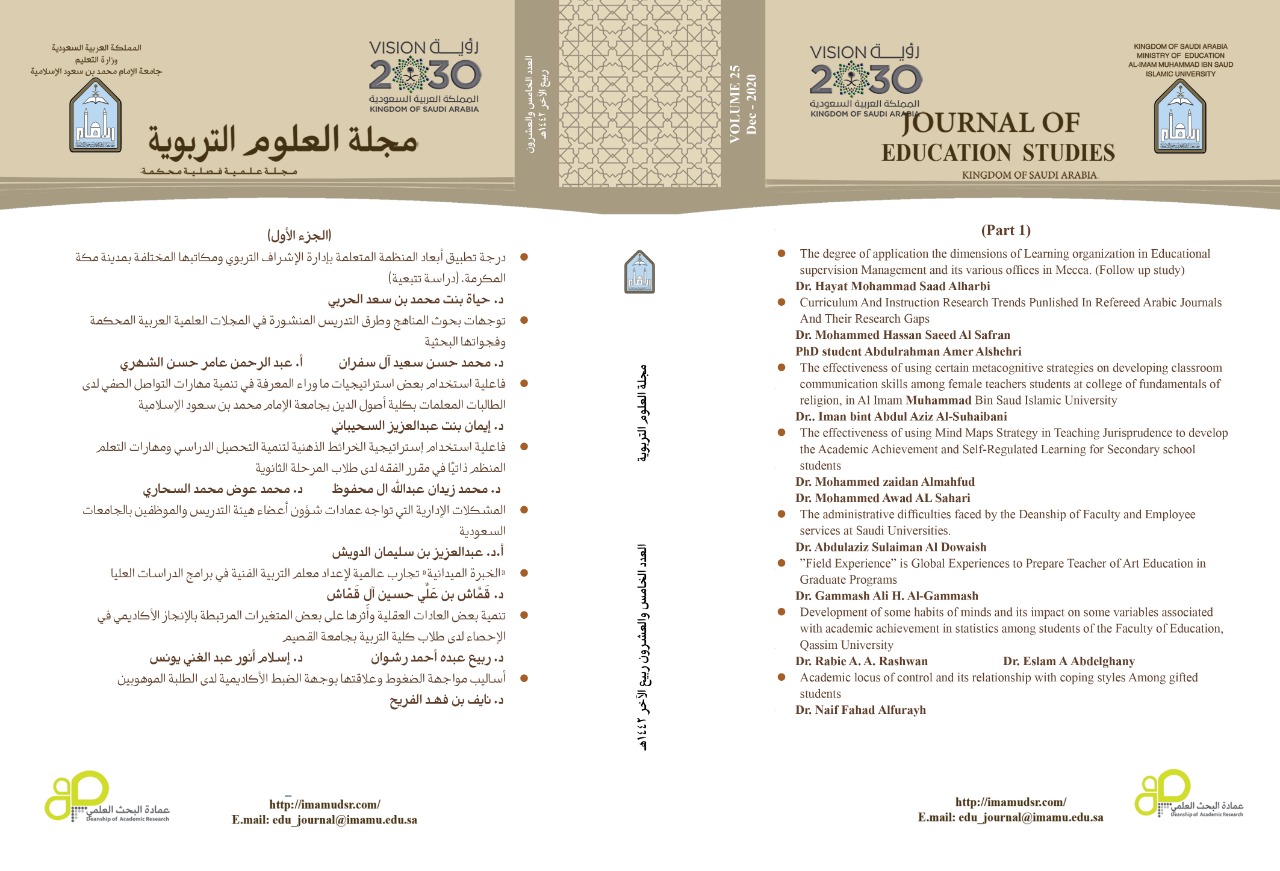Academic locus of control and its relationship with coping styles Among gifted students
Keywords:
Coping styles, Locus of control, gifted students, Saudi ArabiaAbstract
The current study aimed to identify the degree and type of the relationship between the locus of control and coping styles among gifted students, and the impact of the variables of gender and academic grade on them, and to identify the most prominent coping styles adopted by gifted students with an internal and external locus of control. The sample consisted of 162 gifted students in the middle school, including 110 males and 52 females. The descriptive correlational method was used in the current study. The instrument of coping styles (prepared by the researcher), and Curtis & Trice's instrument of locus of control (translated by researcher) were applied. Results indicated that the most common coping styles among gifted students were positive reappraisal, developing self-efficacy and learning skills, paying attention to other activities, effective confrontation, and consideration and deliberation. On the other hand, avoidance of mental preoccupation, emotional ventilation, behavioral cognitive withdrawal, excessive academic activity, adopt of failure avoidance strategies, denial, reduction of goals were the least common ones. Results also indicated a significant negative correlation between all dimensions of coping styles and locus of control, except emotional ventilation, avoidance of mental preoccupation, and excessive academic activity. The results also showed significant differences in all dimensions of coping styles among gifted students due to different of locus of control (internal, external), and the differences were in favor of internal locus control, except emotional ventilation, avoidance of mental preoccupation, and excessive academic activity. There were no significant differences in coping styles among gifted students due to gender differences or due to different academic grades, except the development of self-efficacy and learning skills, reducing goals, denial, where they were less used by third grade students than by the first and second grades' ones. Finally, result showed that there were no significant differences in locus of control among gifted students due to the variables of gender, grade level.




